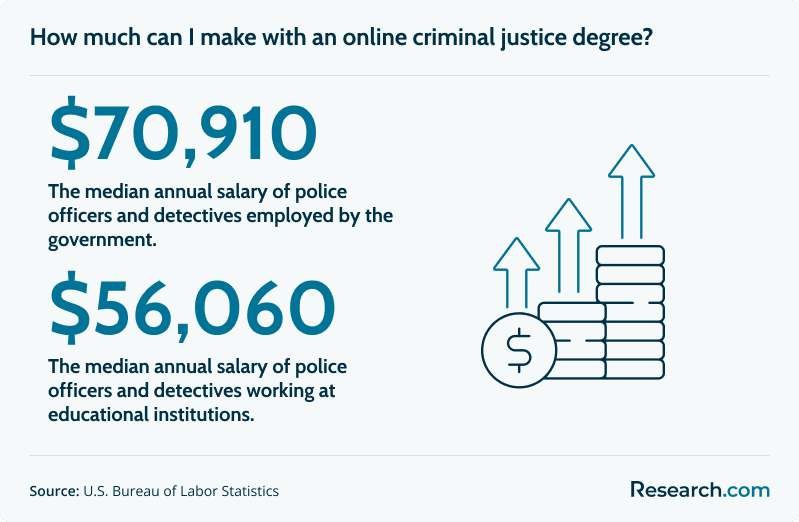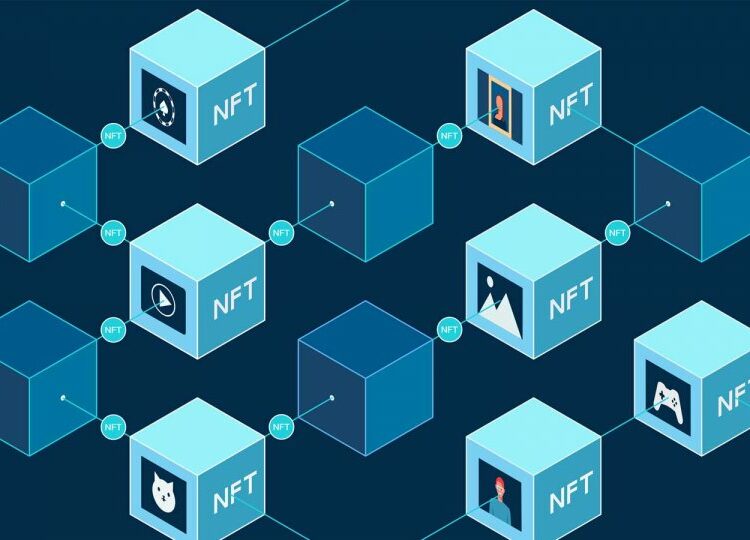In today’s digital landscape, organizations ranging from small startups to global enterprises face increasing threats from cyberattacks. This reality underscores the pressing need for skilled cybersecurity professionals. The best online cyber security certificate programs are pivotal in addressing this demand, equipping individuals with the expertise to safeguard organizations and individuals against cyber threats.
Toc
- 1. The Value of Online Cybersecurity Certificates
- 2. Choosing the Right Online Cybersecurity Certificate Program
- 3. Best Online Cyber Security Certificate Programs for Beginners
- 4. Related articles 01:
- 5. Building Your Cybersecurity Portfolio
- 6. Certifications to Supplement Your Cybersecurity Education
- 7. Related articles 02:
- 8. Frequently Asked Questions (FAQ)
- 9. Conclusion
The Value of Online Cybersecurity Certificates

Online cybersecurity certificates represent a valuable investment for anyone eager to enter this rapidly growing field. These programs provide essential skills and knowledge, allowing individuals to pursue entry-level positions in cybersecurity without the extensive time and financial commitment associated with traditional degree programs.
One of the primary advantages of online certificates is their cost-effectiveness. Online cybersecurity certificates are often significantly more affordable than traditional degree programs. For instance, the Google Cybersecurity Professional Certificate on Coursera costs around $39 per month, whereas a traditional Master’s degree in Cybersecurity can cost upwards of $30,000 per year. This cost-effectiveness makes online certificates a compelling option for individuals seeking to transition into the cybersecurity field without incurring substantial debt. Additionally, the flexibility of online learning allows students to balance their studies with other commitments, such as work or family.
Earning a cybersecurity certificate can greatly enhance your resume, making you a more competitive candidate in the job market. With the cybersecurity industry experiencing explosive growth, driven by an increasing number of cyber threats, the demand for skilled professionals is at an all-time high. According to the Bureau of Labor Statistics, job openings in cybersecurity are projected to rise by 32% from 2022 to 2032, underscoring the importance of obtaining relevant qualifications.
Choosing the Right Online Cybersecurity Certificate Program

Selecting the best online cyber security certificate programs can feel daunting due to the variety of options available. However, by focusing on key factors, you can find a program that aligns with your career aspirations and learning style.
Assessing Your Career Goals
Understanding your career objectives is crucial when choosing a certificate program. Different cybersecurity roles require distinct skill sets, so it’s essential to identify which area you wish to pursue. Whether you are interested in network security, ethical hacking, or digital forensics, aligning your certificate program with your career goals will ensure you acquire the relevant skills needed for your desired position.
Evaluating Program Curriculum
Examine the course offerings of potential programs to ensure they meet your needs. Look for programs that emphasize hands-on learning, practical skills, and industry-recognized certifications. A well-designed curriculum equips you with the necessary knowledge and practical experience to thrive in the competitive cybersecurity field.
Prioritizing Accreditation and Reputation
Opt for programs from reputable institutions with a proven track record in cybersecurity education. Accreditation from recognized organizations such as the National Security Agency (NSA) or the Department of Homeland Security (DHS) is a mark of quality and can significantly enhance your credentials.
Understanding Flexibility and Support
Consider the program’s flexibility regarding scheduling and pacing. Many online programs offer self-paced study, which can be particularly beneficial for those balancing work or personal commitments. Additionally, look for programs that provide support services such as career counseling, job placement assistance, and online forums for peer interaction, as these can contribute significantly to your overall success.
Best Online Cyber Security Certificate Programs for Beginners

1. https://toprunracing.vn/archive/3445/
2. https://toprunracing.vn/archive/3447/
3. https://toprunracing.vn/archive/3446/
Here’s a curated list of some of the best online cyber security certificate programs tailored for individuals with little to no prior experience:
Google Cybersecurity Professional Certificate (Coursera)
The Google Cybersecurity Professional Certificate, offered through Coursera, is a comprehensive program that covers essential cybersecurity concepts such as network security, threat identification, and incident response. This certificate features hands-on labs and projects, effectively preparing you for entry-level roles like security analyst or SOC analyst.
CompTIA Security+ Certification Prep (Various Providers)
While not a certificate program in itself, CompTIA Security+ is a widely recognized industry certification that validates foundational cybersecurity knowledge. Numerous online providers offer prep courses and exam vouchers, allowing you to demonstrate your commitment to professional development and enhance your employability in the cybersecurity sector.
Cyber Defense Professional Certificate (University of Central Florida)
The Cyber Defense Professional Certificate program from the University of Central Florida offers hands-on training and career guidance, enabling you to enter the cybersecurity workforce in just 36 weeks. The curriculum covers critical topics such as network security, ethical hacking, and incident response, equipping you with job-ready skills and opportunities to earn industry-recognized certifications.
Cybersecurity Fundamentals Certificate (Champlain College Online)
Champlain College Online’s Cybersecurity Fundamentals Certificate program focuses on developing essential skills in networking, programming, and information security. This online certificate can serve as a stand-alone program or as a stepping stone toward a full bachelor’s degree in cybersecurity, providing you with the flexibility to tailor your educational journey.
Building Your Cybersecurity Portfolio

Beyond earning an online cybersecurity certificate, building a portfolio of skills and experience can significantly enhance your credentials.
Cybersecurity Competitions and Capture-the-Flag (CTF) Events
Participating in cybersecurity competitions and Capture-the-Flag (CTF) events is a valuable way to build practical skills and gain recognition within the cybersecurity community. These events are designed to mimic real-world scenarios, challenging participants to solve complex problems such as defending a simulated network against sophisticated attacks or finding and exploiting vulnerabilities in a controlled environment. For example, the DEF CON CTF is one of the most prestigious CTF events in the world, attracting skilled participants from around the globe. It offers a unique opportunity to showcase abilities in diverse areas such as reverse engineering, cryptography, and web application security. Engaging in these competitions not only helps in honing technical skills but also provides a platform for networking with like-minded professionals and experts in the field.
Volunteering and Internships
Gaining hands-on experience through volunteering or internships is crucial for anyone aspiring to excel in cybersecurity. These opportunities provide a practical understanding of the industry, allowing individuals to apply theoretical knowledge in real-world settings. Look for roles in local organizations, nonprofits, or tech companies that require assistance with cybersecurity initiatives. Such experiences can be invaluable when building your resume and expanding your professional network. They often provide insights that are not available in a classroom setting and can significantly enhance your skill set. Additionally, some academic and certificate programs may offer internship opportunities as part of their curriculum, providing a structured pathway to gaining practical experience.
Self-Study and Personal Projects
Self-study through online resources and personal projects is essential for demonstrating a commitment to continuous learning in cybersecurity. Engage in creating your own virtual lab environment to simulate various scenarios and practice problem-solving. Additionally, platforms like HackTheBox or TryHackMe offer countless challenges that allow you to practice and improve your skills at your own pace. Another excellent way to showcase your capabilities is by contributing to open-source security projects on platforms like GitHub. These activities not only enhance your technical skills but also highlight your initiative and dedication to the field. By consistently working on personal projects and tackling new challenges, you can develop a robust skill set that sets you apart in the competitive landscape of cybersecurity.
Certifications to Supplement Your Cybersecurity Education

In addition to your online cybersecurity certificate, pursuing industry-recognized certifications can further strengthen your qualifications. Here are some popular certifications to consider:
LPI Linux Essentials
The LPI Linux Essentials certification is designed to validate your fundamental understanding of the Linux operating system, which is a crucial skill as Linux powers many of the world’s servers and systems. This certification ensures you can proficiently manage users, groups, and system security, while also equipping you with knowledge of Linux’s basic command-line tools and open-source philosophy. It is particularly beneficial for individuals aiming to work in diverse environments that rely heavily on Linux systems, providing a solid groundwork for further advanced Linux certifications.
AWS Certified Cloud Practitioner
As cloud computing technology continues to grow in significance, gaining a thorough understanding of cloud infrastructure, security, and compliance is increasingly important. The AWS Certified Cloud Practitioner certification demonstrates your foundational knowledge of the AWS Cloud platform, covering essential services, features, and its comprehensive security protocols. This certification is an excellent introduction to cloud computing and serves as a valuable addition to your cybersecurity portfolio, enhancing your ability to work with cloud-based solutions and ensuring that you are well-versed in the principles of secure cloud architecture.
1. https://toprunracing.vn/archive/3448/
2. https://toprunracing.vn/archive/3446/
3. https://toprunracing.vn/archive/3445/
CompTIA Network+
The CompTIA Network+ certification is an industry-standard credential that assesses your proficiency in configuring, managing, and troubleshooting network devices. It ensures you have a strong grasp of network fundamentals, such as protocols, topologies, and hardware, as well as your familiarity with emerging technologies like virtualization and cloud computing. This certification serves as a critical stepping stone for IT professionals seeking to specialize in network security, as it provides the foundational knowledge necessary to protect and optimize network infrastructures in a rapidly evolving technological landscape.
Cisco Certified CyberOps Associate
The Cisco Certified CyberOps Associate certification is tailored for individuals interested in Security Operations Center (SOC) roles, focusing on the skills needed to effectively perform in such environments. It covers essential topics such as cybersecurity operations, incident detection, analysis, and response, equipping you with the ability to manage security incidents from start to finish. This certification is ideal for aspiring cybersecurity professionals looking to enter the SOC field, as it provides the practical knowledge and technical skills necessary to protect organizations from cyber threats and attacks, ensuring you are prepared to address the complex challenges faced in modern security operations.
Frequently Asked Questions (FAQ)
Q: Do I need a college degree to enroll in an online cybersecurity certificate program?
A: Most online cybersecurity certificate programs do not require a college degree. However, they might have certain prerequisites, such as a foundational understanding of computers or relevant IT experience. These prerequisites ensure that learners can keep up with the technical demands of the program and gain the most benefit from the coursework.
Q: How long does it take to complete an online cybersecurity certificate program?
A: The duration of online cybersecurity certificate programs varies widely depending on the institution and the intensity of the curriculum. Typically, most programs are designed to be completed within 6-12 months. Some programs may offer accelerated options for learners who wish to complete their studies more quickly, as well as extended timelines for those balancing other commitments.
Q: What are some entry-level cybersecurity jobs I can pursue with a certificate?
A: With a cybersecurity certificate, you can target several entry-level roles in the cybersecurity field. These include positions such as security analyst, security operations center (SOC) analyst, penetration tester, and incident responder. However, it’s important to note that while a certificate can open doors to these opportunities, gaining additional experience and industry-recognized certifications can enhance your qualifications for specific positions and help you advance in your career.
Q: Can I earn an online cybersecurity certificate while working full-time?
A: Absolutely, many online cybersecurity certificate programs are designed with working professionals in mind. They often offer flexible schedules, allowing students to engage in self-paced learning. This flexibility makes it possible to balance work commitments with educational pursuits, enabling learners to study at times that fit into their personal and professional lives.
Conclusion
The field of cybersecurity offers robust career prospects and the potential for growth, which makes pursuing a career in this area both promising and rewarding. As cyber threats continue to evolve, the demand for skilled professionals that can protect digital assets and manage security operations is expected to rise significantly. By taking advantage of online certificates, participating in competitions, gaining hands-on experience, and obtaining industry certifications, you can effectively pave your path in the cybersecurity sector. These steps not only prepare you with essential skills and knowledge but also differentiate you as a competent professional ready to tackle the challenges of modern digital security. With continuous learning and dedication, you can build a fulfilling and impactful career in cybersecurity.











